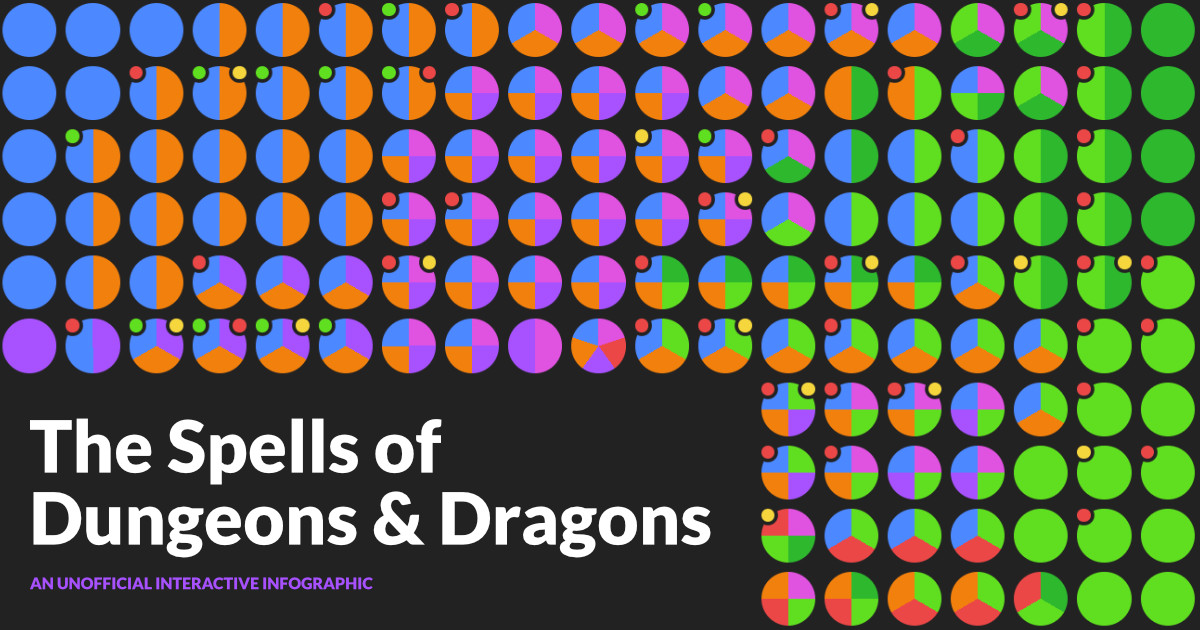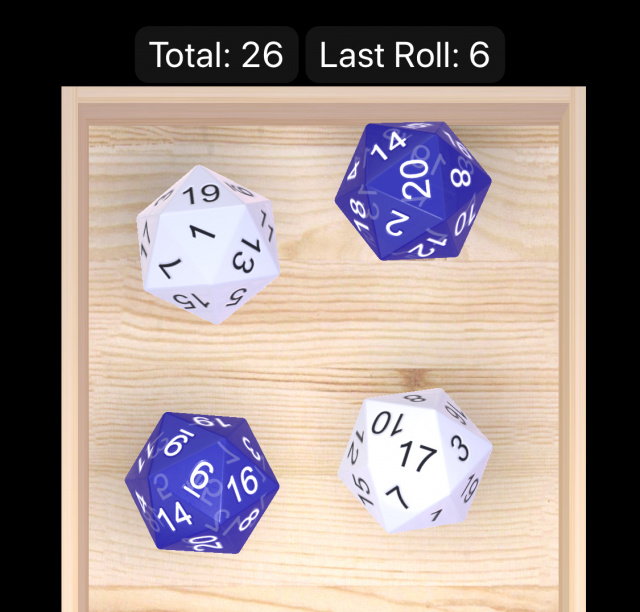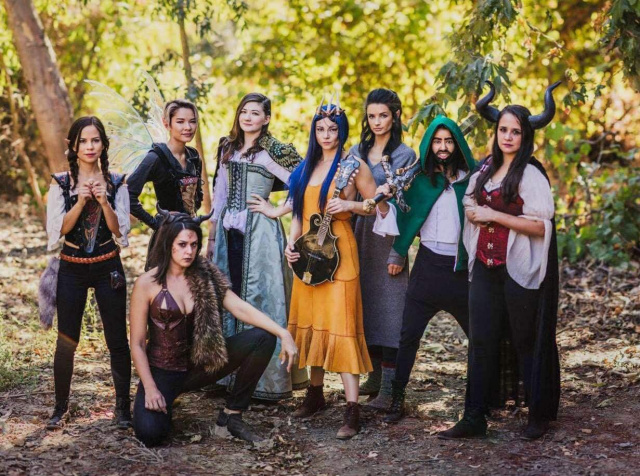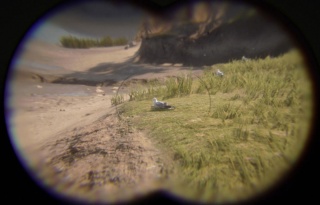Fun game where you adjust the RGB sliders to match the background color. I thought I was pretty good at eyeballing RGB and I get to 90% pretty quickly. But getting that last 10% is tricky.
games
Really nicely executed browser version of Cardline where you place events in chronological order. Three misses and you’re out. Works well on a phone too.
Conspiracy Thinking as Corrupted Play
I hesitate to mention conspiracy theories at all because while I think they can be entertaining to turn over in your mind they're ultimately not a rewarding way to spend your mental energy. What if humans didn't land on the moon? is a neat party trick once but you can't build a movement on it because it doesn't hold up with any scrutiny. (By the way, check out the fantastic three-episode Our Fake History podcast on this topic: Why Deny the Moon Landings?)
If you haven't been following the big consipracy theory of our day, I don't blame you. There's a good primer in The Atlantic: American conspiracy theories are entering a dangerous new phase. I think it's good to be aware of it because it's starting to affect our politics and creep into our culture. You can't help but encounter these theories on social media. And unlike moon landing denial or flat-earthers, these theories have become a dangerous world view and belief system for many of the people who are snared.
One useful angle I've seen for thinking about these all-encompassing conspiracies is comparing them with alternate reality games. ARG designers Adrian Hon and Dan Hon both had great articles expanding on this connection: What ARGs Can Teach Us About QAnon and QAnon looks like an alternate reality game. I think looking at the history of ARGs can help us make predictions about how current conspiracy behavior will unfold. I especially liked this idea Jon Glover mentioned of corrupted play that describes losing the frame:
Another post that gave me a lot to think about this topic was Mike Hoye's Connections. He saw conspiracy thinking as similar to occult thinking and summarized C. S. Lewis' view of its ultimate futility:
If you haven't been following the big consipracy theory of our day, I don't blame you. There's a good primer in The Atlantic: American conspiracy theories are entering a dangerous new phase. I think it's good to be aware of it because it's starting to affect our politics and creep into our culture. You can't help but encounter these theories on social media. And unlike moon landing denial or flat-earthers, these theories have become a dangerous world view and belief system for many of the people who are snared.
One useful angle I've seen for thinking about these all-encompassing conspiracies is comparing them with alternate reality games. ARG designers Adrian Hon and Dan Hon both had great articles expanding on this connection: What ARGs Can Teach Us About QAnon and QAnon looks like an alternate reality game. I think looking at the history of ARGs can help us make predictions about how current conspiracy behavior will unfold. I especially liked this idea Jon Glover mentioned of corrupted play that describes losing the frame:
Role play is contingent on navigating between real and imagined worlds, which affords opportunities for allegorical thinking, exploration of alternate identities and universes, and creative problem solving. But when this boundary collapses, we have what Joseph Laycock calls “corrupted play,” a term that helps explain dark or weaponized ARGs.Corrupted play describes both the appeal and danger of conspiracy thinking. The appeal is all of the good pieces of play that we need but twisting it by losing the fact that it is play at all. Here's the article by Glover: This Is Not a Game.
Another post that gave me a lot to think about this topic was Mike Hoye's Connections. He saw conspiracy thinking as similar to occult thinking and summarized C. S. Lewis' view of its ultimate futility:
Lewis saw occultism as a sort of psychological snare, a set of endlessly self-referential symbols of symbols of symbols with no ultimate referent, a bottomless semiotic rathole for the overcurious inquirer designed to perpetually confuse and distract the mind.In computer terms, this reminds me of a Honeypot:
Generally, a honeypot consists of data (for example, in a network site) that appears to be a legitimate part of the site that seems to contain information or a resource of value to attackers, but actually, is isolated and monitored and, enables blocking or analyzing the attackers.However, unlike a script that's trapped in a loop gathering bogus data, conspiracy adherents take their collected data and act in the world.
Random D&D Links
After taking the summer off, my D&D group is gearing up to play again so I've been gathering links. Here are some that I've found useful recently:
- dwgill: Rollout - New character stat generator. Click the Presets for some good alternate rules you could try. Here's a longer description: A(nother) Dungeons & Dragons Attribute Generator.
- Github: Azgaar's Fantasy Map Generator - whoa.
- RPG Stack: How can I describe hit point damage without talking about wounds? - Great ideas for narrating combat in the comments here.
- Dungeon Dudes (YouTube): Five Simple House Rules for Better Combat - I like all of these alternate rules adapted from 4th edition.
- Mega-Tutorial: Fantasy Worldbuilding - A good summary of real-world medieval history through the lens of building RPG settings.

How many sorcerer spells overlap with wizard spells? Which spells are unique to rangers? These questions and more are answered in this nifty visualization.
I’ve been having fun with this 3D animated dice-rolling app. Seems like it’ll be good for all of my RPG needs especially those rare times I need to roll a bunch like 10d6 or 12d8. (This is a picture of a roll with advantage—a nice built in feature.)



There are many reasons D&D is having a cultural moment and this article mentions a few. I think the game design decision to use more gender inclusive language and imagery in the 5th edition has been a big part of it.

Thanks a lot gray lady, you calling D&D cool officially makes it uncool! aw, who am I kidding—it was never cool and I wouldn’t have it any other way. *ruffles D&D’s hair*

If you're like me you've spent way too much time talking about the true randomness of dice with gaming friends. The conversation always turns to automating dice rolls via robotics, cameras, computer vision, compiling results, and haha yeah, that'd be great. The talk is always theory because it would require serious dedication to actually pull it off. Well someone did it and it is as glorious as I thought it would be. How fair are D&D dice? Not very fair, it seems, but the real destination here is the journey.
pool balls

The details in Red Dead Redemption 2 are part of what makes it so fun to play. The Audubon Society sees what they've done there. I agree on the sound design—as you change environments, the sounds of the natural world change. The game simulates 178 different animals: Red Dead Redemption 2 Full Compendium and constantly catching glimpses of them makes the world feel more real. I don't spend time birding in RDR2 but it's fun to know I could if I wanted to.
Best Games of the Year
This is my completely arbitrary take on my favorite games from this year.
The top honor goes to Dungeons & Dragons 5th Edition.

Specifically, Curse of Strahd which my game group has been playing for all of 2018 and probably most of 2017. It has a good balance of role-playing, puzzles, and fighting and the atmosphere is just different enough from the default D&D world to keep you guessing without feeling completely foreign.
I've had a lot of fun playing Blood Rage lately. It's set in the land of Norse myth and at first glance it looks and sounds like a classic player vs. player fighting for area control game—and it is that! But there's a surprising amount of strategy involved. There are some great mechanics around losing area control which makes it tough to know how to block other players. It's a great combination of analysis and action.

Root is another very different kind of area control game. It has asymmetrical play which means each player is using different mechanics to get victory points. It takes some getting used to and I had to play through a game before I even started thinking about how to optimize my turn. Having an experienced Root player on hand to answer questions is also a plus. Once you make it though those barriers, the game has a lot of turns and surprises and gives you a lot to think about. I found myself going over potential Root strategies days after playing.

The classics are classics for a reason. I played a lot of Settlers of Catan this year because it's my family's favorite game. Even kids who can't read can get the hang of Catan pretty quickly. It's also a great way to introduce someone to Eurogames if their only experience with board games is Monopoly and Scrabble. (Which are fun too but not the full spectrum of what's possible!)
A friend brought a self-printed DIY version of The Mind to a game night because he'd heard it was popular in Germany and there wasn't a way to get a copy in the US. We played this weird game where you put cards in numeric order with sly communication and luck and we were genuinely cheering our successes. I'm not sure it counts as a game, but whatever it is it's dramatic and everyone has fun.

I've been having fun playing KeyForge with my son as a nice change of pace (for me) from Magic. KeyForge has a clever design where every deck has a unique set of cards and is evenly matched against other decks. The deck names are algorithmically generated, sometimes with humorous results. It is a nicely designed resource-gathering game where you can use cards without an energy-style mechanic. It feels a lot lighter than Magic but it has some complexity with different styles of play (fighting vs. stealing vs. spells) possible through the different factions. If you think you'd enjoy Magic without the deck building/collecting aspects you'll probably enjoy KeyForge.
That's it—happy gaming!
The top honor goes to Dungeons & Dragons 5th Edition.

Specifically, Curse of Strahd which my game group has been playing for all of 2018 and probably most of 2017. It has a good balance of role-playing, puzzles, and fighting and the atmosphere is just different enough from the default D&D world to keep you guessing without feeling completely foreign.
Best Board Games

I've had a lot of fun playing Blood Rage lately. It's set in the land of Norse myth and at first glance it looks and sounds like a classic player vs. player fighting for area control game—and it is that! But there's a surprising amount of strategy involved. There are some great mechanics around losing area control which makes it tough to know how to block other players. It's a great combination of analysis and action.

Root is another very different kind of area control game. It has asymmetrical play which means each player is using different mechanics to get victory points. It takes some getting used to and I had to play through a game before I even started thinking about how to optimize my turn. Having an experienced Root player on hand to answer questions is also a plus. Once you make it though those barriers, the game has a lot of turns and surprises and gives you a lot to think about. I found myself going over potential Root strategies days after playing.

The classics are classics for a reason. I played a lot of Settlers of Catan this year because it's my family's favorite game. Even kids who can't read can get the hang of Catan pretty quickly. It's also a great way to introduce someone to Eurogames if their only experience with board games is Monopoly and Scrabble. (Which are fun too but not the full spectrum of what's possible!)
Best Card Games

A friend brought a self-printed DIY version of The Mind to a game night because he'd heard it was popular in Germany and there wasn't a way to get a copy in the US. We played this weird game where you put cards in numeric order with sly communication and luck and we were genuinely cheering our successes. I'm not sure it counts as a game, but whatever it is it's dramatic and everyone has fun.

I've been having fun playing KeyForge with my son as a nice change of pace (for me) from Magic. KeyForge has a clever design where every deck has a unique set of cards and is evenly matched against other decks. The deck names are algorithmically generated, sometimes with humorous results. It is a nicely designed resource-gathering game where you can use cards without an energy-style mechanic. It feels a lot lighter than Magic but it has some complexity with different styles of play (fighting vs. stealing vs. spells) possible through the different factions. If you think you'd enjoy Magic without the deck building/collecting aspects you'll probably enjoy KeyForge.
That's it—happy gaming!
